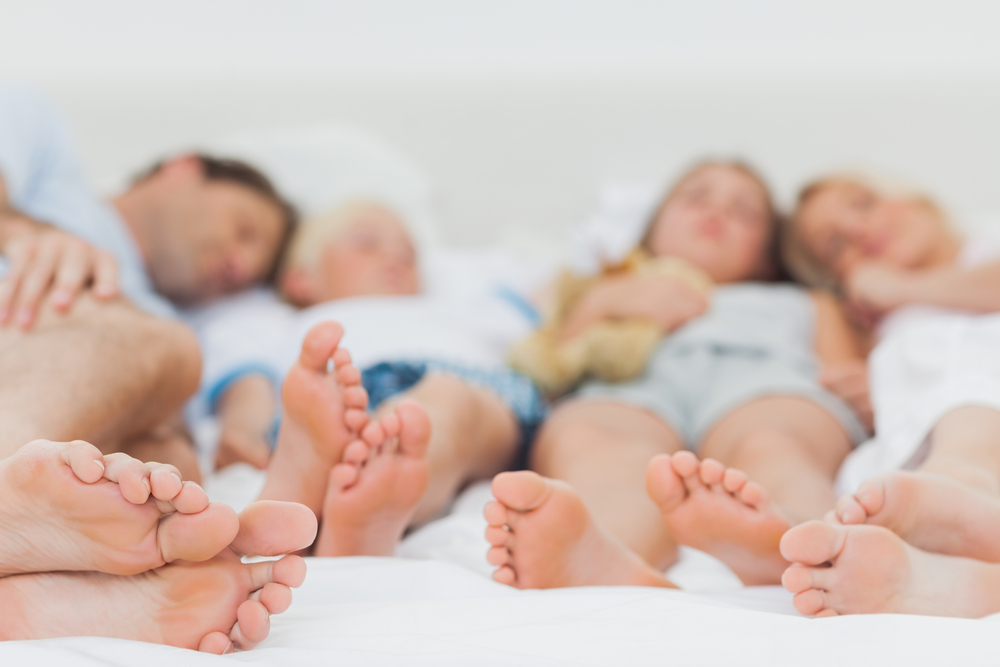Sleep Myths Debunked: 8
It’s no wonder there are so many myths about sleep.
Modern sleep research only really began in the middle of the 20th century, with the milestone discovery of REM sleep in the 1950s.
Before that, sleep was widely regarded as a ‘passive process’ and hence, not of great interest in terms of scientific inquiry.
When it comes to real ‘facts’ about sleep, this relative lack of empirical evidence, has, over the years led to a disproportionate amount of homespun advice, folk wisdom and old-wive’s tales.
There are many mysteries of sleep yet to be solved. The good news is, in the last few decades, science has been able to separate a lot of the fiction from fiction.
Over 11 days, we are exploring some of the scientific research behind 33 of the most commonly held myths and misconceptions about sleep.
22: Sleep disorders are difficult to treat
Sleep disorders occur for numerous reasons. They can be triggered by physiological or emotional factors and can last anywhere from a few nights to several years.
Sleep deprivation can be very debilitating and many sufferers lack the energy or motivation to explore ways of finding a solution to their problems.
Often, in desperation, people turn to sleeping pills just to get a night’s sleep, but sleep experts now recognize non-drug treatments as the most effective long-term solution to treat insomnia.
Practicing good ‘sleep hygiene‘ is the first step towards alleviating your problems. If your symptoms persist you can talk to your doctor about taking a course of cognitive behavioural therapy or CBT.
This is a package of treatments that includes stimulus control, cognitive therapy and relaxation techniques.
23: Exercise before bed helps you sleep
Regular exercise has long been promoted as a vital part of a healthy lifestyle. Common sense tells us that when we are exhausted through physical exertion we will naturally feel tired and sleepy.
So many people have come to believe that partaking in physical exercise will promote a good night’s sleep.
However, the relationship between sleep and exercise is more complicated than many people realise. The current scientific literature exploring the effects of exercise on sleep is limited and inconsistent.
One study found that total sleep time actually decreased when participants took more exercise. A different study concluded that there was no difference in the quality of sleep on non-exercise days and moderate exercise days.
Another sample of more than 2600 men and women found that 150 minutes of moderate exercise a week provided a 65 percent improvement in sleep quality.
There’s also conflicting advice as to whether you should exercise in the morning, afternoon or evening. However, don’t let the confusion put you off. The bottom line is, exercise is good for you.
If you feel it may be interfering with your sleep patterns, speak to a health professional and/or try to change your regime to see if you notice any improvement in your sleep.
It’s an age old theory that imagining images of sheep and counting them one by one will help to lull you to sleep. However, when scientists at Oxford University ‘s Department of Experimental Psychology put this to the test they found that the opposite could be true.
Volunteers were asked to visualize a range of different scenarios as they tried to go to sleep. On average, those who pictured images of counting sheep took up to 20 minutes longer to fall asleep than those who imagined other scenarios such as a relaxing beach, for example.
The scientists concluded that counting sheep is just too repetitive and boring to occupy enough ‘cognitive space’ in the brain. Effectively this could lead to other distracting thought patterns entering your mind, making it harder for you to relax and eventually fall asleep.




